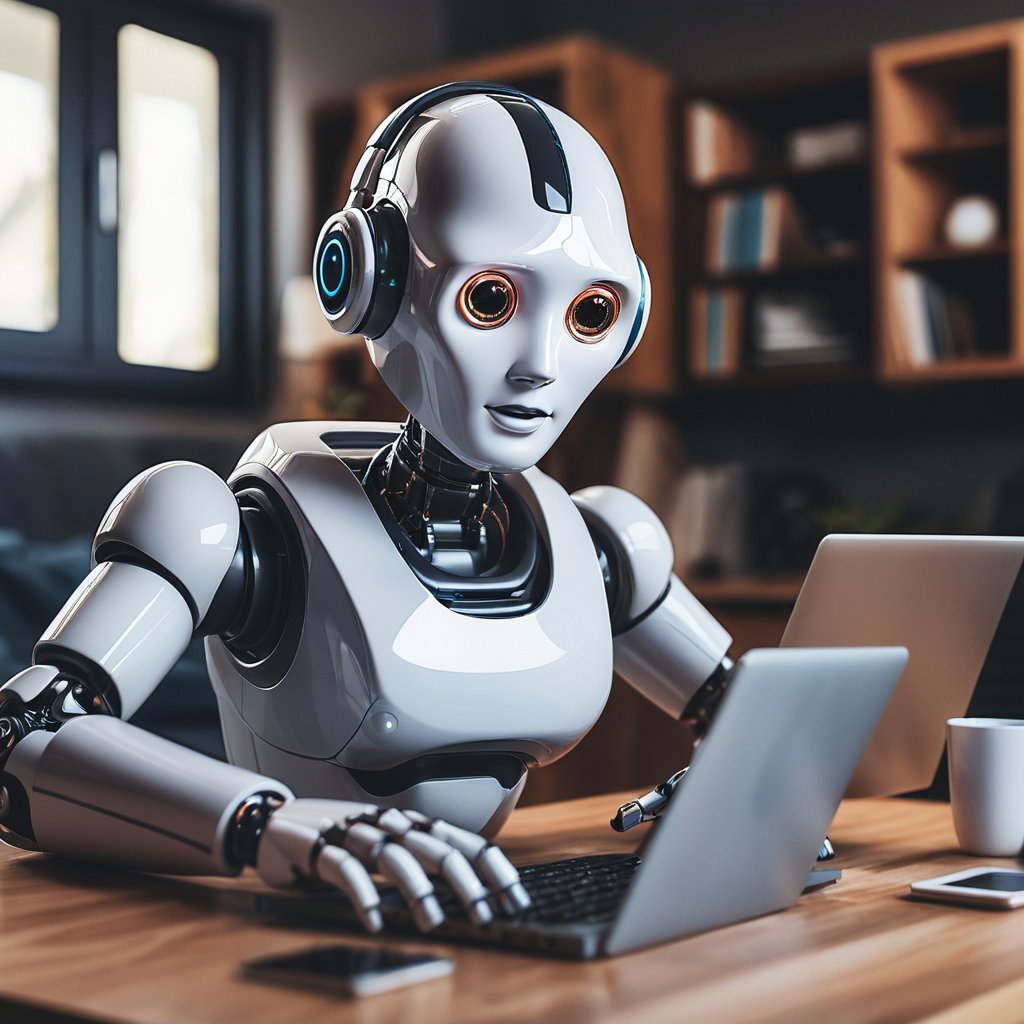Artificial Intelligence (AI) is changing the way we approach Search Engine Optimization (SEO). As AI technologies evolve, they are making search engines smarter, helping create better content, and improving how users find information online. In this article, we’ll explore how AI is impacting SEO and what it means for businesses and marketers. We’ll keep the focus on the keyword “AI impact on SEO” throughout our discussion.
- Enhanced Search Algorithms
AI is making search algorithms better, making them smarter and more focused on what users want. Search engines like Google use AI to understand what people are looking for and provide more accurate search results.
- Natural Language Processing (NLP): AI-powered NLP helps search engines understand the meaning behind words. This means they can deliver results that match what users are really looking for, even if their queries are not perfectly phrased. For example, if someone types a question in a conversational tone, NLP helps the search engine understand and provide the best answer.
- Machine Learning: Search engines use machine learning to constantly improve their algorithms based on user interactions. The more people use the search engine, the better it gets at delivering relevant results. This means SEO strategies need to be updated regularly to keep up with these changes.
- Content Creation and Optimization
AI tools are changing how we create and optimize content for SEO. They help generate ideas, write articles, and ensure content is optimized for search engines.
- Content Generation: AI-powered tools can quickly produce high-quality content. For instance, tools like GPT-4 can write articles, blog posts, and other materials that are well-structured and good for SEO. This helps businesses keep their websites updated with fresh content.
- Content Optimization: AI tools can review existing content and suggest ways to improve it for better SEO performance. They analyze keyword usage, readability, and relevance to make sure the content is effective for both search engines and readers.
- Personalized User Experience
AI enhances the user experience by providing personalized content and recommendations. This personalization is important for SEO because search engines want to keep users satisfied.
- User Behavior Analysis: AI can track and analyze how users interact with a website, predicting their preferences and tailoring content to meet their needs. This leads to higher engagement and longer site visits, which can improve SEO rankings.
- Voice Search Optimization: With more people using voice search, AI helps businesses optimize their content for these types of queries. This involves using natural language and conversational keywords, which are key for ranking in voice search results.
- Advanced Data Analysis
AI allows for advanced data analysis, offering deeper insights into SEO performance and helping businesses make better decisions.
- SEO Analytics: AI-powered analytics tools can process large amounts of data to identify trends and opportunities. This helps businesses understand what’s working and what needs improvement in their SEO strategies.
- Predictive Analysis: AI can forecast future trends and user behavior, helping businesses stay ahead. By anticipating changes in search algorithms and user preferences, businesses can adjust their SEO strategies proactively.
- Automated SEO Tasks
AI is automating various SEO tasks, saving time and resources while ensuring accuracy and consistency.
- Keyword Research: AI tools can perform thorough keyword research, identifying valuable keywords and phrases that can drive traffic. They analyze competition and search volume to provide actionable insights.
- Link Building: AI can help identify potential link-building opportunities and manage outreach campaigns, making the process more efficient and effective. This helps businesses build high-quality backlinks that boost their SEO performance.
Preparing for the AI-Driven SEO Future

To stay competitive in the AI-driven SEO world, businesses and marketers need to adapt and use AI technologies effectively. Here are some steps to prepare for the future:
- Embrace AI Tools: Use AI-powered tools for content creation, optimization, and analytics. These tools can enhance efficiency and provide valuable insights.
- Focus on User Intent: Understand what users are looking for and create content that meets their needs. This will help improve your SEO performance.
- Stay Updated: Keep up with the latest trends and updates in SEO and AI to ensure your strategies remain relevant.
- Invest in Quality Content: High-quality, relevant content is key to successful SEO. Use AI tools to enhance your content but make sure it remains engaging and valuable to your audience.
- Optimize for Voice Search: With the growing popularity of voice search, optimize your content for voice queries by using natural language and conversational keywords.
Conclusion
AI is changing SEO in many ways, from improving search algorithms to personalizing user experiences. By understanding and leveraging AI’s impact on SEO, businesses can stay ahead in the competitive online marketplace. Embrace AI technologies, focus on user intent, and continuously adapt your strategies to thrive in the AI-driven SEO future.
By integrating AI into your SEO practices, you can improve your online visibility, drive more traffic, and achieve better results for your business.
